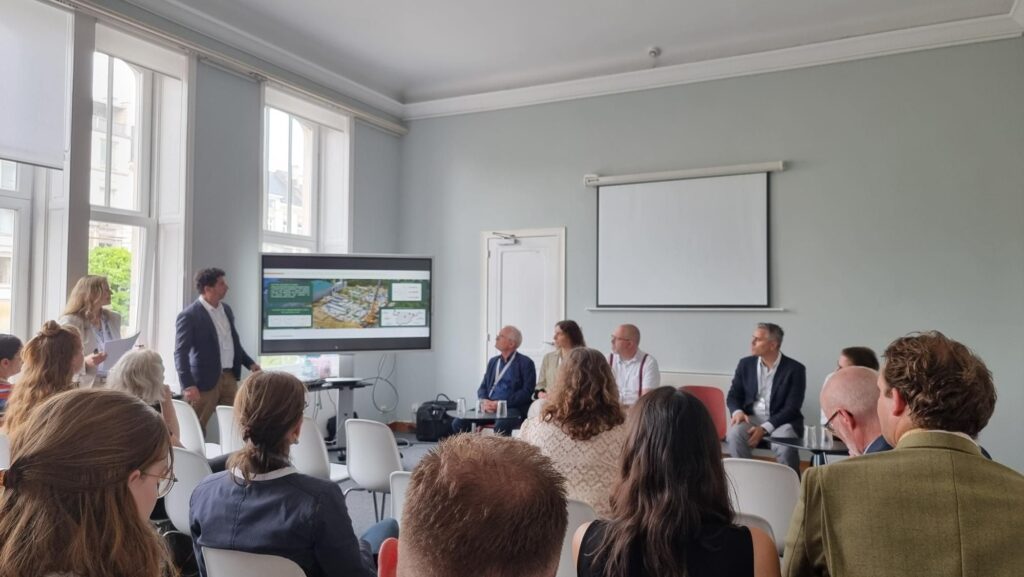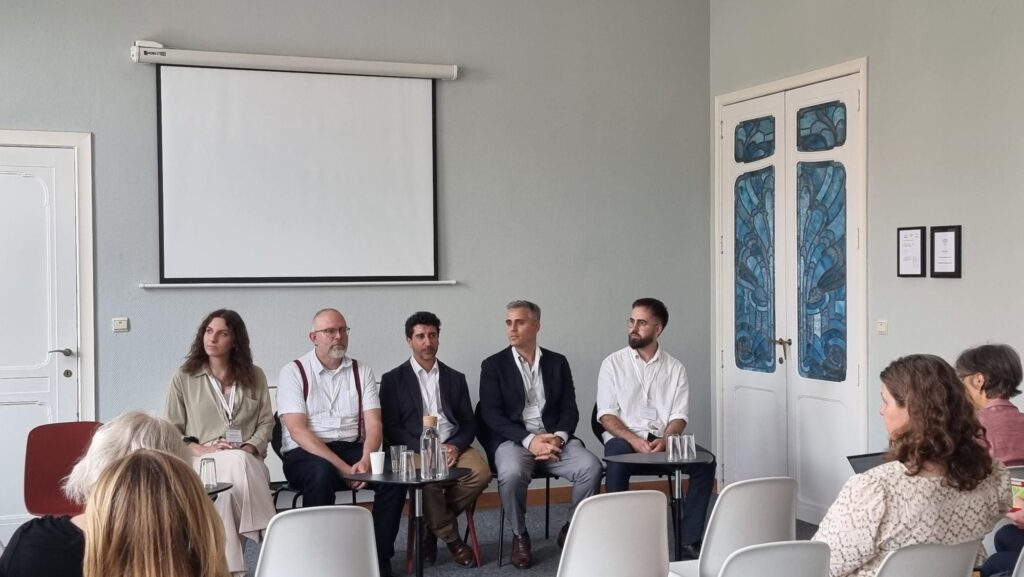
On June 3rd, the MoeBIOS project took center stage at the European Bioplastics Talk #5 in Brussels. Hosted by European Bioplastics, the event brought together key stakeholders in the bioeconomy to explore how innovative projects can be scaled from pilot phase to industrial implementation.
Representing MoeBIOS, David Costa Milan (Greene) and Arno Cordes (ASA Spezialenzyme GmbH) joined the panel discussion titled “From Project to Industrial Implementation.” Their participation highlighted MoeBIOS’s active role in building systemic, circular value chains for bioplastics recycling—from packaging, agriculture, and textiles.
A strong message: Innovation ready for industry
David Costa Milan delivered a clear message during the session:
“MoeBIOS is not just another research project—it’s a concrete, industry-oriented initiative. We are proving that complex bioplastics can be recycled at scale while meeting both performance and sustainability requirements.”
This statement underscored MoeBIOS’s ambition: to bridge the gap between innovation and market uptake, and to deliver scalable recycling solutions that respond to real-world industrial needs.
Overcoming the barriers to bioplastics recycling
The panel discussion shed light on persistent challenges:
-
Technical complexity of bioplastic waste, especially from post-consumer streams.
-
Economic feasibility of recycling processes compared to virgin plastic.
-
Regulatory gaps, particularly in recognizing emerging recycling technologies under current EU frameworks.
Despite these hurdles, the mood was optimistic. There was strong consensus on the need for supportive EU policy, especially aligned with the EU Green Deal, Circular Economy Action Plan, and Packaging and Packaging Waste Regulation (PPWR).

Technology in focus: flexibility and impact
One of the standout moments came during audience Q&A, when a participant asked how MoeBIOS technologies, especially Greene’s gasification process, handle variability in real-world bioplastic waste.
David responded by highlighting Greene’s core strength:
“Greene’s technology is designed for flexibility. We can process mixed and contaminated bioplastic streams efficiently—something essential if we want real-world impact at scale.”
His intervention showcased MoeBIOS as more than a research initiative. It’s a market-ready solution, capable of adapting to industrial needs and contributing to a resilient circular bioeconomy.
A call for policy alignment
David’s closing statement carried a clear call to action for EU decision-makers:
“We’re demonstrating that advanced recycling technologies like Greene’s gasification can deliver real circularity. But for these solutions to scale, policymakers must recognize and support them as sustainable pathways. Without that alignment, innovation risks staying in the pilot phase. We need regulation that evolves with technology if we truly want to close the loop.”
Contributing to Europe’s green transition
By developing replicable recycling models, MoeBIOS is empowering stakeholders in the packaging, agriculture, and textile sectors to adopt high-quality secondary raw materials. This supports the EU’s transition toward a climate-neutral, resource-efficient future and advances key targets under the Horizon Europe and CBE JU frameworks.
Join the Conversation
We thank European Bioplastics for organizing this impactful event and for creating space to spotlight EU-funded innovation.
Want to follow MoeBIOS’s journey as we continue turning research into real-world recycling solutions?
Follow us on LinkedIn and X (Twitter) for regular updates on project milestones, events, and insights into the circular bioeconomy.

